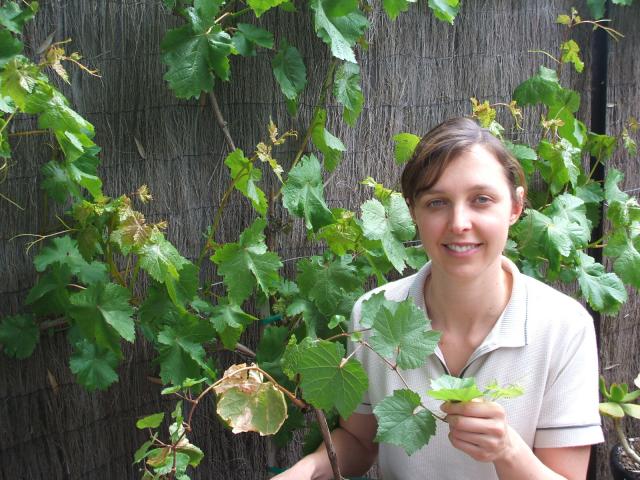Research it
The agriculture industry is constantly evolving and is always on the lookout to find new and better ways of doing things.
As a researcher, you’ll be the one who makes this progress happen by making new discoveries and developing technology to help cope with climate change and support life on this planet.
What sort of things will I do in a ‘Research it’ career?
A career in agricultural research can take you to a lot of different places; from working outdoors in the field, looking through a microscope in the lab or following the weather patterns around the world.
Let’s take a closer look at three agricultural research careers.
Agricultural scientist
An agricultural scientist studies animals, plants and farm systems to provide information on productivity and sustainability to farm businesses and agricultural industries.
Some of the day-to-day tasks of an agricultural scientist include:
- collecting samples of crops, animal feed and soil and conducting tests in laboratories and greenhouses
- researching cultivation techniques, soils, insects, plants, crop production, pasture growth and animal breeding
- advising farmers and farm managers about better ways to produce crops and livestock, control weeds and pests, and improve farming practices
- developing procedures and techniques for solving agricultural problems and improving the efficiency of production.
To become an agricultural scientist you usually have to complete a Bachelor of Agricultural Science or Bachelor of Science with a major in Agriculture. For these university courses, you’ll need to complete complete a year 12 ATAR pathway.
For more information see Career Harvest - agricultural scientist
Meteorologist
A meteorologist studies the atmosphere to forecast the weather and provide information about our climate. Meteorologists are essential in agriculture as they provide information that can be used to protect and manage crops and livestock.
As a meteorologist, some of your day-to-day tasks could include:
- recording, analysing and interpreting information from weather stations, satellites, radars and remote sensors and interpreting this information for use by farmers and farm managers
- preparing weather forecasts using mathematical formulas and computer software
- researching and identifying climate change
- writing research papers, reports, reviews and summaries
- working in a team with physicists and engineers to develop observation equipment and distribute information.
To become a meteorologist you need to complete a Bachelor of Science or Applied Science, majoring in Mathematics, Physics or Meteorology, usually at Honours level. For these university courses you’ll need to complete a year 12 ATAR pathway.
For more information see Career Harvest - meteorologist
Agricultural technical officer
An agricultural technical officer collects samples and works with agricultural scientists to assist with research and testing.
Some of the day to day tasks of an agricultural technical officer include:
- setting up equipment and collecting samples from crops or animals so testing can be performed
- recording and interpreting information from experiments
- interpreting aerial photographs and preparing maps of soil and vegetation patterns
- assisting with the laboratory experiments to test the test plants, animals, soils and farming techniques
- researching and providing advice about various technical issues.
To become an agricultural technical officer you need to complete a Vocational Education and Training (VET) qualification in Agriculture, Horticulture or Animal Technology.
A university degree in agriculture or science with a major in agriculture may improve your chances at finding employment. For these university courses you’ll need to complete a year 12 ATAR pathway.
For more information see Career Harvest - agriculture technical officer
Where can I get more information?
If a career in research and agriculture is for you, find out more at the websites listed under 'External Links' on this page.

